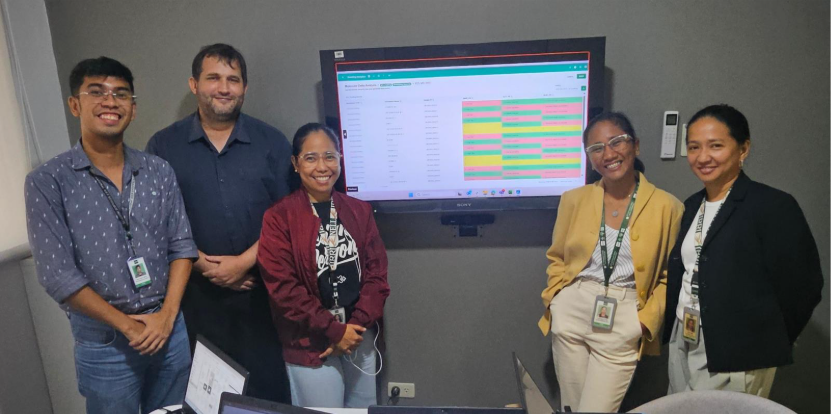QTL Profiling Now Live on EBS

QTL profiling is now integrated into the EBS Platform’s MDA module.
Teams across CGIAR research Centers continue to collaborate to enhance the Enterprise Breeding System (EBS), the breeding data management platform developed and maintained by CGIAR. This joint effort ensures that EBS evolves with user needs and provides crop-agnostic support to breeders across 20 crops worldwide.
EBS is actively developing Molecular Data Analysis (MDA) support to help breeders identify quantitative trait loci (QTLs), which are specific regions of the genome associated with desirable traits. As part of this development, a QTL profiling feature has been created in collaboration with Dr. John Damien Platten from IRRI, and consulting with experts for other crops across CGIAR Centers.
QTL profiling is an analytical method that uses a DNA fingerprint to develop a profile of which genes/QTLs are present (and absent) in new varieties. With this tool, crop breeders are able to connect genetic information to breeding outcomes more quickly and precisely.
As one of the early users, Nana Amoah, Rice Molecular Breeder at AfricaRice, remarked: “The new feature will transform what is currently a cumbersome, manual process into a much faster and more streamlined workflow.”
The feature is now accessible to all breeders through EBS, supporting those working on rice at IRRI, AfricaRice, CIAT and national research institutes, as well as breeders of non-rice crops. “The collaborative nature of EBS allows these functions to be brought quickly to all CGIAR crops, improving the ease and rigor associated with molecular selection pipelines,” says Damien Platten. “We are proud to contribute to this cross-cutting effort.”
For rice, QTL profiles currently report on over 90 high-value genes linked to traits that farmers and consumers need most, such as yield, quality, and resilience, and the system allows simple and rapid updates to keep pace with new discoveries.
“This new capability aligns with our mission to simplify breeders’ work while empowering them to deliver greater impact for farmers,” explained Andre Moretto Embersics, CGIAR Breeding Resources (BR) Digital Solutions Lead, which oversees the tool’s development under the banner of CGIAR Breeding for Tomorrow.
“The integration of QTL profiling is only possible thanks to the dedication of the BR Digital Solutions team and the strong partnerships we’ve built with CGIAR Centers such as IRRI. The IRRI Rice Team has been a steadfast partner since before EBS was even a prototype, and our ongoing collaboration continues to drive meaningful results for the entire network,” Moretto added. Since the QTL profiling technique can be applied to other crops, this will pave the way for broader benefits across crop breeding programs using EBS worldwide.
This work was co-funded by the Gates Foundations and CGIAR Breeding for Tomorrow as part of the haplotype project.
This work also contributes to IRRI’s work under CGIAR Breeding for Tomorrow (B4T) Science Program through its Breeding Resources Area of Work. Breeding Resources is a partnership that brokers and delivers sustainable, cost-effective breeding and research tools and services across the global CGIAR-partner breeding network.
About the Enterprise Breeding System (EBS)
The Enterprise Breeding System is a CGIAR-developed and maintained breeding data management platform supporting modern plant breeding. By integrating data management, analytics, and decision-support tools, EBS enables breeders to develop improved, climate-resilient, and market-preferred crop varieties more efficiently and effectively. EBS is available to all CGIAR Centers and partner with national research institutes worldwide and supports over 20 crops.